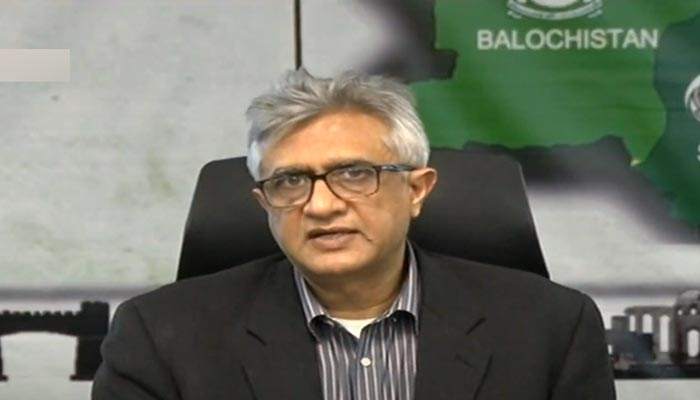- Pakistan expected to get free vaccines for 20% population through COVAX Facility, says PM’s aide Dr Faisal Sultan
- Country to start rolling out vaccine in the first quarter of 2021, says Dr Sultan
- Dr Sultan reiterates that the government-funded vaccine will be free of cost
Special Assistant to Prime Minister on Health Dr Faisal Sultan on Wednesday said that Pakistan is in advanced level talks with two manufacturers to procure the COVID-19 vaccine.
Addressing a press conference in Islamabad, he said that the two companies were Sinopharm and CanSino.
Dr Faisal said that Sinopharm is being used in several countries, and its efficacy is around 80-85%. Meanwhile, CanSino’s Phase-III trails are being conducted in Pakistan, and they are expected to conclude soon, the special assistant said, noting that the results of the vaccine would be available soon.
As many as 17,500 took part in the vaccine trials. The trials in three out of five centres have concluded, while they are near completion in two centres, Dr Sultan said.
The statistical analysis of the vaccine have begun and we expect the results at the beginning of February, he said, adding that Pakistan is entitled to 20 million doses on the condition that the vaccine is effective.
Moreover, through the World Health Organisation’s COVAX Facility, Pakistan is expected to get free vaccines for 20% of the country’s population.
Sixty four higher-income economies have joined the COVAX Facility, a global initiative that brings together governments and manufacturers to ensure eventual COVID-19 vaccines reach those in greatest need.
To ensure that Pakistan can avail the doses through COVAX, there is a need for government-level talks; and our officials have been in contact with the Chinese officials, said Dr Sultan.
“Today, we also met UK’s ambassador and I assure you that we will announce a positive outcome soon,” he said.
Speaking of the current status of procurement, the special assistant said that in the first quarter (January-March), the government will be able to procure one million vaccine doses. “We believe that we will be able to obtain more doses in the future,” he said.
Talking statistics, he said that the country’s population is 220 million, while the people under 18 are approximately 120 million. “The vaccine is approved for the adult population and if we can inoculate 70% of our population, I expect the country to achieve immunity.”
Criteria for vaccines
The technical committee that was tasked to review the coronavirus vaccine candidates had to look at several aspects before opting for one, Dr Sultan said.
The aspects that it analysed were:
- Which technology was used
- The efficacy of the vaccine
- Is the vaccine safe? Does it have side effects
- The cold chain requirement of the vaccine
- How much can the company produce
- How can it be made available in Pakistan
The committee initiated talks with eight short-listed companies and took the talks further. On the other hand, it is also registering companies whose results are available.
Drug Regulatory Authority of Pakistan (DRAP) had approved AstraZeneca and Sinopharm’s vaccines in the last few days, he said.
How will Pakistan distribute the vaccine?
Pakistan would distribute the vaccine through the Expanded Programme on Immunization (EPI), and the country is capable of inoculating its entire population, he said.
To streamline the process, the government has developed software to track it. “As many as 400,000 health workers have registered in the resource management system.”
“The training includes thousands of people — frontline health workers, technical staff, logistics, and waste management.”
Speaking further on inoculation phases, he said that frontline health care workers would be the first to receive the vaccine.
In the next phase, the rest of the health care workers and people over 65-years of age will receive shots.
Then, people above 60 and the population above 18 will be inoculated.
“I reiterate that the vaccine will be free of cost,” said the premier’s aide.
Dr Sultan clarified that the private sector and provincial governments are free to procure vaccines on their own — if need be.

